Those with Mainland Operations Await Signal on Extent of their ‘QUALIFYING INCOME‘
Businesses operating out of UAE free zones and with a considerable presence on the mainland are thinking of possible restructures to the organization to absorb the upcoming Corporate Tax.
But any such changes to the business must stay on the right side of the ‘anti-abuse rules’ that form part of the UAE CT regulations, top tax consultants add.
“Yes, restructuring existing operations (of free zone enterprises with mainland operations) needs serious consideration,” said Nimish Goel, Partner at Dubai-based WTS Dhriva Consultants. “However, any restructuring or hiving off (of mainland operations) needs to factor in operational and commercial realities.
“The general anti-abuse rules need to be suitably factored.”
The anti-abuse rules are clear enough – businesses in the UAE cannot make changes solely to gain a tax advantage and thus hope to pay less on their annual income.
Hiving off mainland operations
In their consultations ahead of registering for the UAE CT regime, free zone businesses have talked of the possibility of hiving off their mainland operations to be standalone enterprises. Especially where these businesses operate separate licenses for their free zone and mainland operations.
Free zones represent one of the more significant contributors to the UAE GDP, and the UAE CT rules gives businesses there ample flexibility.
‘Qualifying income’
Under these rules, pure-play free zone businesses/their owners are exempt from the 9 per cent tax payment commitment based on their ‘qualifying income’. And this is to be confirmed by a UAE Cabinet decision that is expected shortly. (The UAE Corporate Tax comes into effect June 1, 2023.)
Raju Menon, Chairman and Managing Partner at Dubai-based consultancy Kreston Menon, emphasizes the point about ‘qualifying income’. “The UAE federal decree stipulated that free zone ‘persons’ could benefit by incurring a 0 per cent corporate tax only on the ‘qualifying income’, which is still to be defined,” said Menon. “Based on available guidance from the UAE Ministry of Finance, the qualifying income should include offshore as well as onshore sources of income of free zone persons (but) subject to strict conditions.
“Hence, there should be detailed guidance forthcoming on this aspect.” (When the decision comes on qualifying income, tax specialists hope it will also address ‘transfer pricing’ issues, which is ‘relevant as entities restructure to have standalone operations between free zone and mainland enterprises’.)
Fairly big incentive for free zone businesses
The ‘free zone person’ incentive is a substantial tax break for eligible businesses, according to Menon. (Apart from businesses engaged in extracting natural resources, government, and government-controlled entities also enjoy exemptions under the Federal Decree Law subject to eligibility criteria and conditions.)
Relief for small businesses
In addition, the Federal Decree Law does contain relief for small businesses ‘where a resident taxable person generating revenue up to a threshold – to be decided by the UAE Minister of Finance – may elect to be regarded as not having derived any taxable income for the relevant tax period,” said Menon. “Accordingly, there will not be any tax cost for such small businesses.
“Any new substantive legislation necessitates businesses to take cognizance of its applicability and plan for efficient change management. Businesses in the UAE should consider undertaking a deep review and documentation of revenue operations, assessing the impact of corporate tax, and completing requisite changes well in time of the effective date.”
Source: “UAE’s free zone companies have lots of tax planning to do”, by Manoj Nair, Business Editor, Business Section, Gulf News newspaper, 4 April 2023 and online article here.


